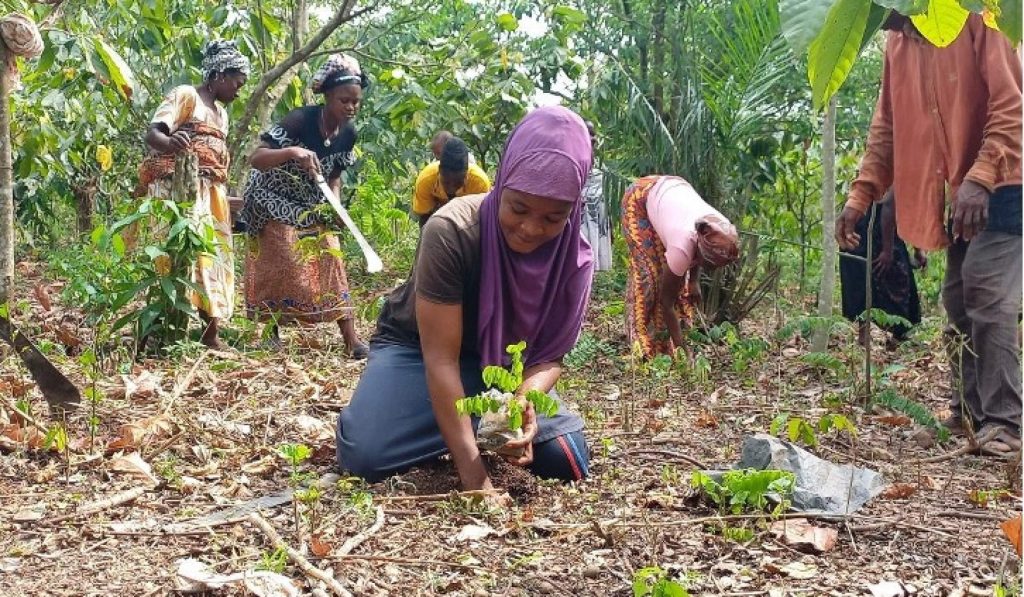
Home > Where We Work >
Biakoye District
Strengthening Forest Management to Protect Biodiversity and Alleviate Poverty
Forests in Biakoye District have been severely degraded through unsustainable tree felling, overgrazing, and agricultural expansion. Most of the communities in the district depend heavily on tree resources as a source of food and income. As a result, tree loss has severely intensified the levels of poverty in the district.

In contributing to addressing the above problem, FHI, with funding from Africa Tree Aid, rolled out a two-year project working in 11 communities in the Biakoye District. The project aimed to protect and restore the biodiversity of the beneficiary communities’ forests, promote a move towards sustainable forest management practices, and enhance alternative livelihood activities to increase household incomes.
Over the two years period, the project successfully protected and restored 110
hectares of forest through a series of best practice Natural Resource Management (NRM) techniques, planting of indigenous tree species, and building the capacity of local communities and authorities to effectively manage the two forests.
The project also supported the communities to set up small-scale enterprises (known as Village Tree Enterprises) to improve livelihoods and increase incomes, focusing primarily on Gari processing and honey value chains.
Project Highlights:
- 708 farmers participated in NRM training and were supported to implement these techniques across the 11 beneficiary communities.
- Over 10,000 new trees were planted and 4,000 trees restored using the Farmer Managed Natural Regeneration technique to promote tree growth from tree stumps and shrubs.
- Soil and water conservation restored 100 hectares of degraded forestland, using stone bunds to reduce water runoff and zai pits to improve soil fertility.
- 32 km of firebreaks were established around restored areas to stop the destruction of existing forests and new trees.
- The capacity of stakeholders (district authorities, technical services, and communities) was strengthened to manage the forests in a more equitable way. This included a decentralized decision-making process that promotes the rights and responsibilities of local forest users and communities that depend on the forests.
- A forest dialogue group and a steering committee involving all local stakeholders were set up for each forest. This provides an open forum for discussion and addresses any conflict over forest use.
- 7 Village Tree Enterprise (VTE) groups, based on Gari and Honey, were set up. They received organizational and technical support to improve production processes, product quality, and business and financial skills.

Want to hear more from us?
Find out how we’re changing the lives of vulnerable people and promoting environmental sustainability.
This email newsletter is administered based on our privacy policy, which tells you more about how we use your information. You can unsubscribe at any time. Over 18s only.
© 2023- Future Hope International (FHI). All Rights Reserved
P. O. Box 44 Kpetoe, Volta Region, Ghana
No. AGO/D/01, American House
Email: futurehope2015@yahoo.com/futurehopegh@gmail.com
Tel: +233244647951/+233200 662592
